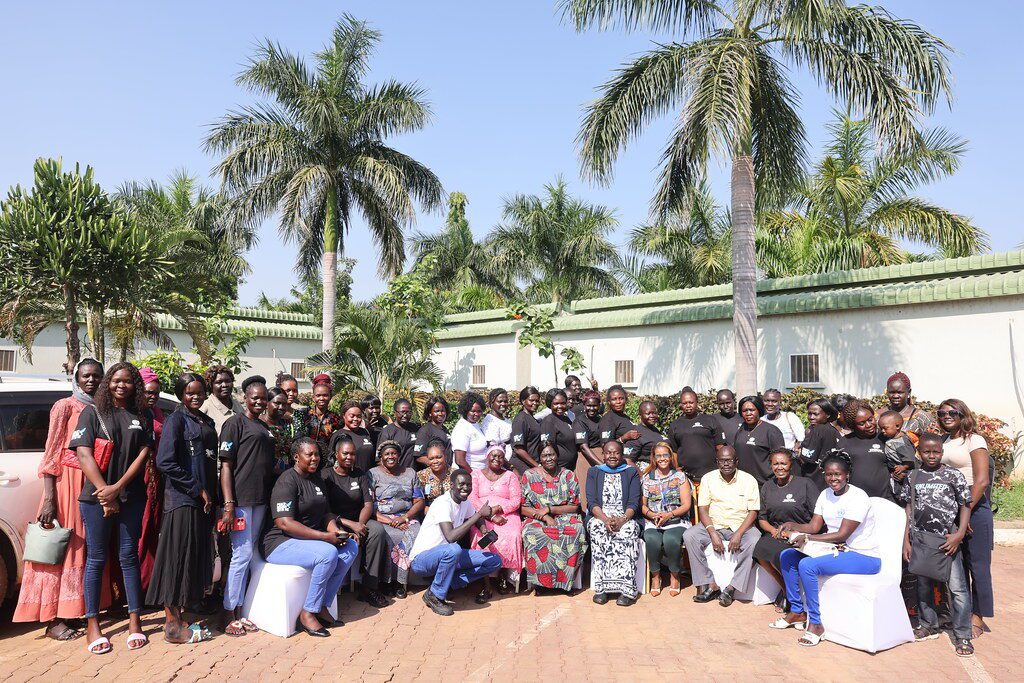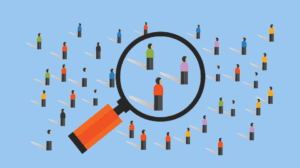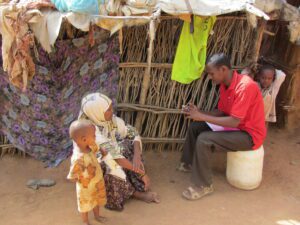1. Introduction
Gender equality is a fundamental human right and a crucial element for sustainable development. In Uganda, achieving gender equality is essential to fostering economic growth, social development, and community well-being. However, women and girls continue to face systemic barriers that hinder their progress.
The Gender Equality in Uganda movement focuses on empowering women through various capacity-building programs. These programs provide women with education, skills, leadership opportunities, and financial independence. By addressing cultural norms, economic inequalities, and access to basic services, Uganda is making strides toward a more inclusive society.
This article explores the current state of gender equality in Uganda, key barriers faced by women, and the initiatives designed to create lasting change.
2. The State of Gender Equality in Uganda
Uganda has made significant progress in promoting gender equality through various policies and programs. However, deep-rooted social and economic challenges continue to affect women and girls disproportionately.
Government Initiatives and Policies
The Ugandan government has implemented several policies to support gender equality, including:
- The National Gender Policy
- The Domestic Violence Act
- The Equal Opportunities Commission
Despite these policies, enforcement remains a challenge, and many women are unaware of their rights.
Role of NGOs and International Organizations
Numerous organizations are working alongside the government to empower women, including:
- UN Women Uganda
- ActionAid Uganda
- Women’s Advocacy Network
These organizations provide funding, training, and legal support to promote Gender Equality in Uganda initiatives.
3. Key Barriers to Gender Equality in Uganda
Achieving gender equality requires overcoming several deep-seated challenges.
Socio-Cultural Norms and Traditions
Uganda’s patriarchal society limits women’s participation in decision-making and economic activities. Cultural beliefs often reinforce traditional gender roles, making it difficult for women to break free from domestic responsibilities.
Economic Dependency and Limited Opportunities
Many women in Uganda rely on their spouses for financial support due to limited employment opportunities. Without economic independence, women have little bargaining power in household decisions.
Limited Access to Education and Healthcare
Education remains a significant challenge, with many girls dropping out due to early marriage, teenage pregnancies, and financial constraints. Similarly, healthcare services, particularly in rural areas, remain inadequate, affecting women’s overall well-being.
Gender-Based Violence and Discrimination
Violence against women, including domestic abuse and sexual harassment, remains a major obstacle. Many cases go unreported due to fear of retaliation, stigma, and lack of legal protection.
4. Gender Equality in Uganda: Capacity-Building Programs
Several capacity-building programs are designed to empower women and eliminate gender disparities in Uganda. These initiatives focus on education, economic empowerment, and social transformation.
Community-Based Initiatives
Community-led programs aim to educate women and men about gender equality. These initiatives promote women’s rights, provide mentorship, and create safe spaces for discussions.
Skills Training and Economic Empowerment
Several NGOs offer vocational training in tailoring, farming, and business management. These programs help women gain financial independence, allowing them to support their families and contribute to their communities.
Some notable programs include:
- The Uganda Women’s Entrepreneurship Program (UWEP) – Provides funding and training for female entrepreneurs.
- The Village Savings and Loan Associations (VSLAs) – Encourages women to save and invest in small businesses.
5. Women’s Leadership and Decision-Making Roles
Encouraging Women in Politics
Women’s participation in politics remains low due to systemic discrimination and lack of support. However, programs that mentor and train women for leadership roles are slowly changing the landscape.
Training for Leadership Roles
Several organizations provide leadership training to women in various sectors, including government, business, and civil society. These programs equip women with the confidence and skills needed to take on leadership positions.
Success Stories of Ugandan Women Leaders
Uganda has seen an increase in female leaders, with women taking up roles in government, business, and advocacy. Notable women such as Rebecca Kadaga, former Speaker of Parliament, have paved the way for greater representation.
Learn more about how capacity-building programs are transforming Uganda here.
6. Economic Empowerment and Financial Inclusion
Economic empowerment is a critical component of Gender Equality in Uganda. By providing women with financial resources and entrepreneurial skills, Uganda is fostering a more self-sufficient and resilient female workforce.
Microfinance Programs for Women
Microfinance programs offer small loans and financial training to women, enabling them to start or expand their businesses. Some key programs include:
- The Uganda Women’s Entrepreneurship Program (UWEP) – Supports women in business through grants and loans.
- Women’s Microfinance Initiative (WMI) – Provides low-interest loans and financial literacy training.
These programs have empowered thousands of women to become financially independent and contribute to household and national economies.
Entrepreneurship Training and Support
Entrepreneurship is a powerful tool for gender equality. Training programs equip women with essential skills such as:
- Business management
- Financial planning
- Marketing strategies
Through mentorship and networking opportunities, women gain confidence and access to markets that were previously inaccessible.
Access to Land and Resources
Women in Uganda often face challenges in owning land due to discriminatory inheritance laws and traditional practices. Advocacy groups are working to reform policies and ensure women have equal rights to land ownership.
7. Education and Skill Development for Women
Importance of Education in Gender Equality
Education is the foundation of gender equality. When girls receive quality education, they are more likely to become financially independent, make informed health choices, and break the cycle of poverty.
Scholarships and Mentorship Programs
Several initiatives support girls’ education, including:
- FAWE Uganda (Forum for African Women Educationalists) – Offers scholarships and mentorship programs.
- The Girls’ Education Movement (GEM) – Encourages girls to stay in school and pursue careers in science and technology.
Vocational Training Initiatives
Vocational training centers provide practical skills in areas such as:
- Tailoring
- Hairdressing
- Agriculture
- Technology
These programs allow women to enter the job market or start their own businesses.
8. Addressing Gender-Based Violence
Gender-based violence (GBV) remains a major barrier to gender equality in Uganda. Efforts to combat GBV focus on legal reforms, community awareness, and survivor support.
Support Systems for Victims
Organizations like Uganda Women’s Network (UWONET) provide:
- Shelter for survivors
- Counseling and legal support
- Community sensitization programs
Legal Frameworks and Policies
Uganda has enacted laws to protect women, including:
- The Domestic Violence Act
- The Prevention of Trafficking in Persons Act
However, enforcement remains weak, and many women lack access to justice.
Community Awareness and Prevention Strategies
Engaging communities is key to reducing GBV. Programs educate men and women about the harmful effects of violence and promote healthier relationships.
9. Healthcare Access for Women and Girls
Maternal Health Services
Maternal mortality remains high in Uganda due to limited healthcare access. Efforts to improve maternal health include:
- Mobile health clinics in rural areas
- Training midwives and birth attendants
- Free prenatal and postnatal care
Reproductive Rights and Education
Providing women with access to reproductive health services and education is crucial for gender equality. Family planning programs help women make informed decisions about their health and futures.
Combating Health-Related Gender Disparities
Women often face health disparities due to financial barriers and cultural stigma. Organizations work to bridge this gap through free screenings, vaccinations, and awareness campaigns.
10. The Role of Men in Gender Equality in Uganda
Engaging Men as Allies
For gender equality to be successful, men must be actively involved. Programs encourage men to support women’s rights and challenge traditional gender roles.
Male Involvement in Advocacy Programs
Men’s groups are being formed to promote gender equality, such as:
- MenEngage Uganda – Works with men to end GBV.
- HeForShe Uganda – Encourages male allies in gender equality movements.
Breaking Stereotypes Through Education
Schools and community programs educate young boys about gender equality, helping to shift mindsets from an early age.
11. Community-Led Gender Equality Programs
Community-led initiatives play a vital role in fostering Gender Equality in Uganda by addressing local challenges and empowering individuals at the grassroots level.
Grassroots Activism
Local organizations and individuals work within communities to:
- Educate families on gender equality
- Support women’s rights through advocacy
- Provide training and resources for economic independence
These efforts create long-lasting change by challenging cultural norms and empowering women at the community level.
Capacity-Building in Rural Areas
Many gender equality programs focus on rural communities where women face the most significant barriers. Programs include:
- Village Savings and Loan Associations (VSLAs) – Helps women access financial resources.
- Community Education Programs – Teaches women about their rights and how to advocate for themselves.
Community Success Stories
Several communities in Uganda have made progress in gender equality due to local efforts. Success stories inspire other regions to implement similar initiatives.
12. Government and Policy Support for Gender Equality
Uganda’s government has introduced various policies to promote gender equality, but challenges remain in implementation and enforcement.
National Gender Policies
Uganda has several gender-related policies, including:
- The National Gender Policy (NGP)
- The Uganda Gender Action Plan
- The Equal Opportunities Act
These policies aim to create a legal framework for gender equality but require stronger enforcement mechanisms.
Implementation Challenges and Solutions
Challenges include:
- Lack of funding for gender equality programs
- Resistance from conservative groups
- Limited awareness among women about their rights
Solutions involve increasing government accountability, securing more funding, and ensuring that policies translate into action.
Collaboration with International Organizations
Partnerships with global organizations such as UN Women and The World Bank provide funding, research, and policy guidance to strengthen gender equality efforts in Uganda.
13. Technology and Digital Inclusion for Women
Digital Literacy Programs
Access to technology is essential for economic and educational opportunities. Digital literacy programs help women gain skills in:
- Computer and internet use
- Online business management
- Digital financial services
Bridging the Gender Gap in Tech Industries
Women remain underrepresented in the tech sector. Initiatives like Women in Technology Uganda (WITU) provide training and mentorship to encourage women to pursue careers in STEM fields.
Online Platforms for Women’s Empowerment
Online resources provide education, networking, and advocacy platforms. Social media campaigns also help raise awareness of gender equality issues.
14. The Future of Gender Equality in Uganda
Long-Term Impact of Current Programs
Programs designed today will shape the future of Uganda’s gender equality landscape. By investing in education, economic empowerment, and legal protection, Uganda can create a society where men and women have equal opportunities.
Goals for the Next Decade
Key objectives for gender equality in Uganda include:
- Increasing women’s representation in leadership roles
- Enhancing access to education for girls
- Strengthening laws against gender-based violence
How Individuals Can Contribute
Everyone can play a role in advancing gender equality by:
- Supporting local organizations
- Educating themselves and others about gender issues
- Advocating for policy changes and social reforms
15. Conclusion
Uganda has made progress in gender equality, but there is still much work to be done. Capacity-building programs play a crucial role in empowering women by providing them with education, economic opportunities, and leadership skills. By addressing cultural barriers, strengthening legal frameworks, and fostering community engagement, Uganda can achieve lasting gender equality.
It is essential for individuals, communities, and policymakers to continue working together to break down the barriers women face. With sustained efforts, Uganda can create a more just and equitable society where women and men have equal opportunities to thrive.
Learn more about capacity-building programs in Uganda here.
FAQs
1. What are the biggest challenges to gender equality in Uganda?
The major challenges include cultural norms, economic dependency, lack of education, gender-based violence, and limited access to healthcare and leadership opportunities.
2. How do capacity-building programs help promote gender equality in Uganda?
These programs provide women with education, vocational training, financial resources, and leadership skills, helping them achieve economic independence and social empowerment.
3. What role do men play in achieving gender equality in Uganda?
Men can support gender equality by advocating for women’s rights, challenging harmful gender norms, and actively participating in awareness programs that promote equality.
4. How can technology help bridge the gender gap in Uganda?
Technology enables women to access education, online businesses, digital financial services, and career opportunities in STEM fields, reducing gender disparities.
5. What policies exist in Uganda to support gender equality?
Key policies include the National Gender Policy, the Domestic Violence Act, the Equal Opportunities Act, and the Uganda Gender Action Plan, all aimed at promoting women’s rights and inclusion.






